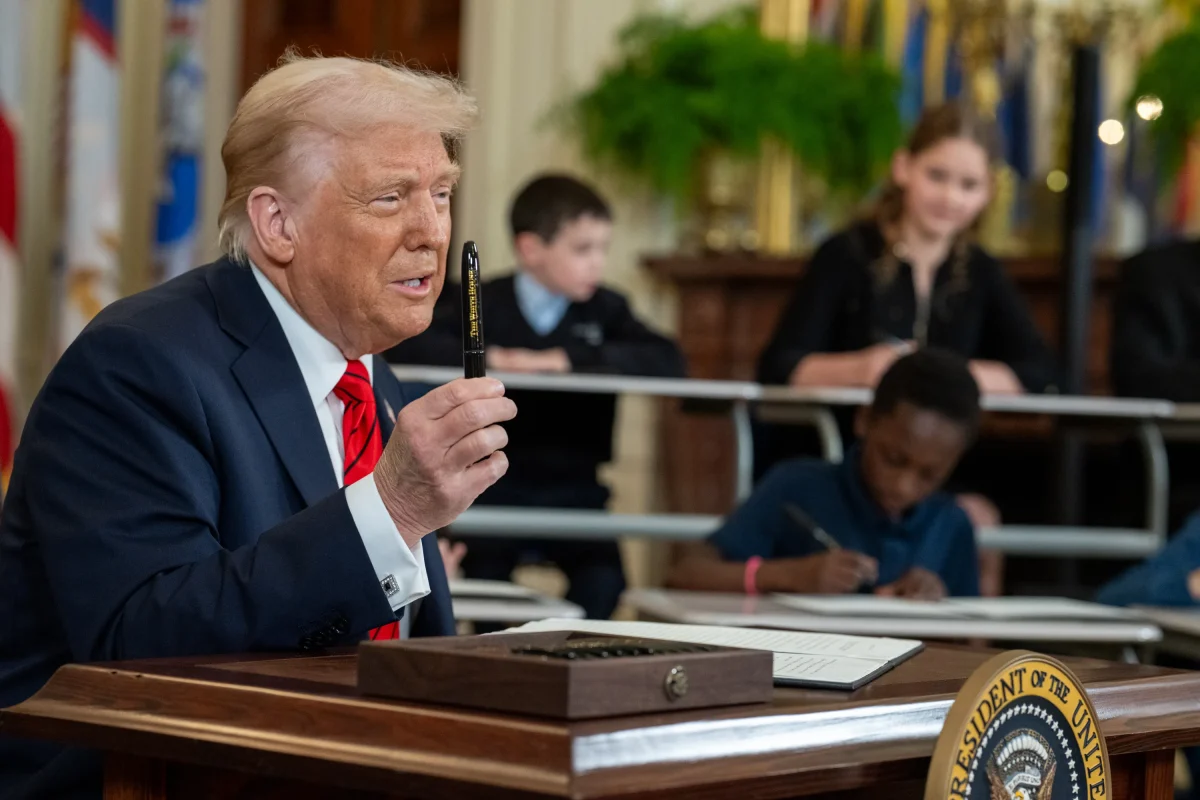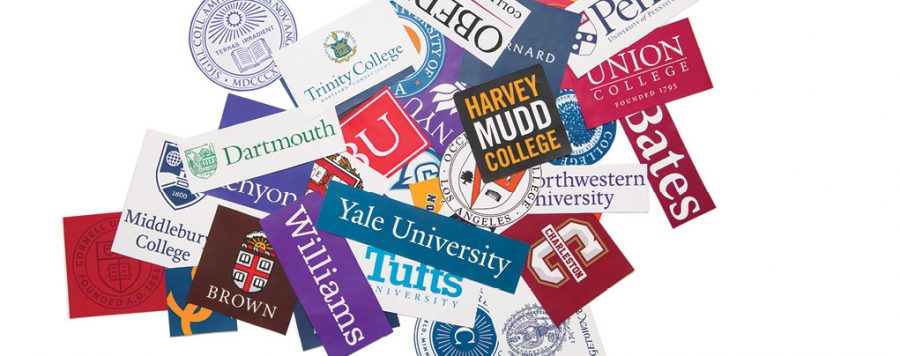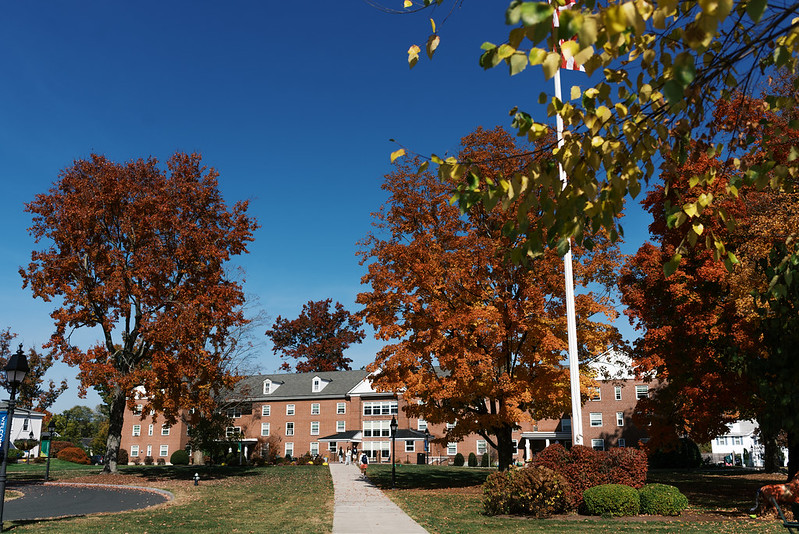A legal and political firestorm has erupted between the Trump administration and Harvard University—one that could redefine the boundaries of academic freedom, government oversight, and the role of higher education in America. At the heart of the conflict: billions in frozen federal funds, a crackdown on international student enrollment, and allegations of political retribution.
In recent weeks, President Trump’s administration has moved to proactively cut off federal funding to Harvard University, citing concerns about campus protests, a lack of “viewpoint diversity,” and perceived ideological bias. The administration has also sought to revoke Harvard’s certification to enroll international students. In response, Harvard has filed a federal lawsuit, arguing that the cuts are unconstitutional. The situation has triggered intense debate across the country—and students at our school are weighing in, many with personal connections to higher education and immigration.
The current battle began earlier this year when President Trump issued a public warning to elite universities, including Harvard and Stanford, accusing them of fostering “radical ideologies” and failing to provide a balanced academic environment. Soon after, the administration ordered a full audit of federal contracts, grants, and visa certifications tied to Harvard.
By April 2025, more than $2.2 billion in federal research grants to Harvard were frozen. Additional cuts have followed, including $450 million slashed from eight different federal agencies in total and the complete withdrawal of $60 million in sponsorship by institutes such as the Centers for Disease Control & Prevention. On May 23, the Department of Homeland Security tried to revoke Harvard’s green light for retaining foreign students who study here—a move that a federal judge has temporarily enjoined after Harvard filed suit.
Unprecedented in both size and speed, the administration’s actions have attracted both support and criticism. Proponents maintain that colleges must be held accountable for fostering what they view as unfair political views. Critics, however, see the cuts in funding as an affront to academic freedom. Harvard’s former President, Claudine Gay, described “attacks on academic freedom” in a statement condemning the administration’s moves.
In its lawsuit, Harvard University accuses the administration of violating the First Amendment and the Higher Education Act by linking ideological mandates to federal funds. “It’s not just Harvard that has a stake in this,” Gay said. “This concerns whether the federal government can use its financial power to punish a university for not following political agendas.”
Ryan Hu, an international boarding student from Beijing, China, is worried for the future of all such students.
“It hits really hard because it sets a dangerous precedent,” he said. “Now the door is open for every future administration to do likewise, which hasn’t happened before.”
Ryan, who aspires to go to an American university, said international students are especially affected.
“Revoking international student visas isn’t just a policy decision—but pretty much personal,” he explained. “Many of us have worked hard to come and study here, to become part of these communities themselves. This decision tells us we’re disposable.”
Jack Wilson, a junior boarder from San Francisco, Calif., is concerned about the broader implications.
“I’m afraid that this kind of political interference undermines the independence of educational institutions,” Jack argued. “Universities should be places for free discourse and an open exchange of ideas, not determined by governmental power centers.”
Reactions across the political spectrum have been predictable. Conservatives have been critical of the decision as yet another example of what they describe as liberal universities.
On Fox News, former Trump advisor Stephen Miller defended the Trump administration against criticism for making these cuts: “For far too long, these institutions have been getting their hands on taxpayer money while they restrict free speech and cut off ideological diversity,” he said. “It’s time that we demanded they be held accountable.”
But legal scholars and education policy experts are sounding alarms. “What this case represents is an attempt to force intellectual uniformity on university campuses through a form of blackmail,” said Dr. Lisa Ortega, a constitutional law professor at Columbia. “This raises very troubling First Amendment questions.”
A number of major universities, including Yale, MIT, and Stanford, have filed friend-of-the-court briefs in support of Harvard’s lawsuit. According to the American Psychological Association, “Amicus curiae (“friend-of-the-court”) briefs are briefs written by individuals or groups who are not directly involved in a legal case but have expertise or insight to offer a court to assist in making its decision.”
Meanwhile, international student advocacy groups have organized protests and petitions to notify the world community that these restrictions on visas might result in a universal brain drain. Harvard’s revised lawsuit is expected to be addressed in federal court hearings commencing mid-June.
If the court rules in the school’s favor, the administration may have to reinstate visa privileges as well as grant access to the frozen capital. If not, however, this could serve as a model for future administrations to impose political litmus tests on universities that receive federal assistance.
For many students, the outcome of the suit will determine how they regard higher education—and their prospects within it.
“Universities had been a place where you could think independently, even if (you disagreed with the authority.” Ryan said. “Now it seems that the government will tell us what kind of thinking is permissible.” Jack also felt that way. “But this isn’t just about Harvard,” he said. “It is about who will control the future of education in America—and whether or not that will belong to all with only the powerful.”
A lack of “viewpoint diversity” on college campuses was cited by the Trump administration as the reason for slashing funding. This term refers to making sure different political, cultural, and ideological views are represented in academic settings. Critics say that the administration is using it as an excuse to go after progressive institutions, while defenders insist this view has merit in today’s polarized climate.
Olin Rose-Bardawil, a recently graduated senior attending Tufts University next fall semester, expressed his displeasure with Trump’s decisions.
“There’s no legal basis for Trump’s demand, he thinks it’s political theater more than anything,” Olin said. “Trump, on the other hand, has control over the number of visas or green cards are being issued. A judge recently ruled that Harvard can admit international students, referencing the Alien and Sedition Acts and national security, but legal experts say those don’t apply since we’re not in a time of war.”
“It’s an ongoing legal battle,” he continued. “Personally, I believe it’s unconstitutional. Even though Harvard is standing firm, I think they may eventually cave just like Columbia, because it’s nearly impossible to maintain funding without 501(c)(3) status. Still, it’s not a good look for Trump.”





















